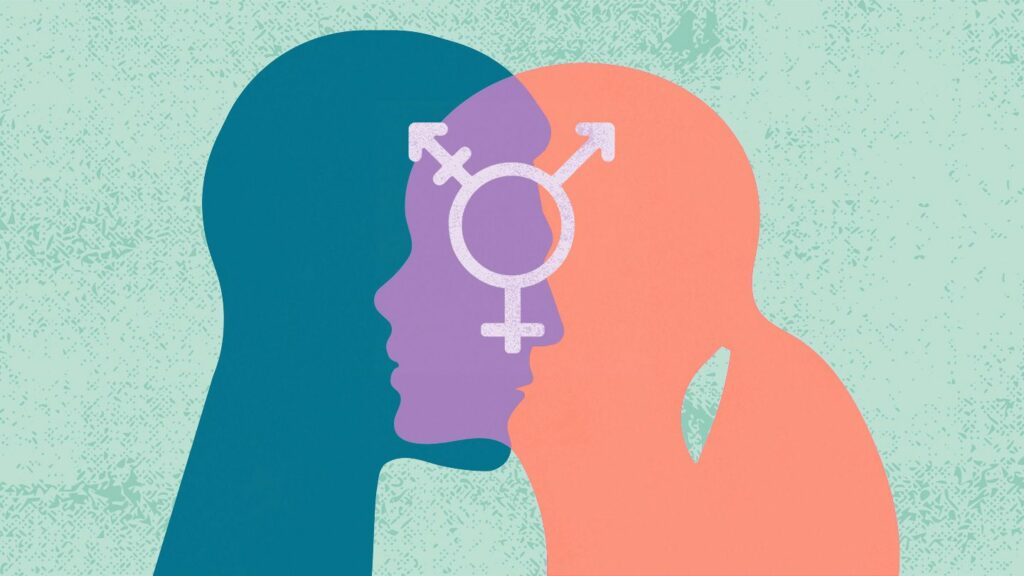Gender dysphoria is a complex experience that can significantly impact an individual’s well-being. For those struggling with their gender identity, finding professional help from a gender dysphoria therapist can be an essential step toward self-discovery, acceptance, and personal growth. In this article, we will delve into the role of a gender dysphoria therapist, their qualifications, the importance of therapy for gender dysphoria, different therapeutic approaches, and how to find a suitable therapist.
Contents
- 1 Understanding Gender Dysphoria
- 2 Role of a Gender Dysphoria Therapist
- 3 Qualifications and Training of Gender Dysphoria Therapists
- 4 Types of Therapy Used by Gender Dysphoria Therapists
- 5 Finding a Gender Dysphoria Therapist
- 6 Confidentiality and Privacy
- 7 Challenges Faced by Gender Dysphoria Therapists
- 8 Role of Gender Dysphoria Therapists in Transitioning
- 9 Conclusion
Understanding Gender Dysphoria
Gender dysphoria refers to the distress or discomfort experienced by individuals whose gender identity differs from the sex they were assigned at birth. It is not a mental illness but rather a recognized medical condition. People with gender dysphoria often experience a deep and persistent sense of being a different gender than the one assigned to them. This can cause significant emotional distress.
Role of a Gender Dysphoria Therapist

Here are some key aspects of a Gender Dysphoria Therapist’s role:
- Assessment and Diagnosis: The therapist initially conducts an assessment to evaluate the individual’s experiences, thoughts, and feelings related to gender identity. They work towards establishing a diagnosis of gender dysphoria based on the Diagnostic and Statistical Manual of Mental Disorders (DSM-5) criteria.
- Providing a Safe and Supportive Environment: The therapist creates a non-judgmental and safe space for individuals to express themselves openly. They foster an environment where clients can discuss their gender identity, explore their feelings, and share their concerns without fear of stigma or discrimination.
- Exploration of Gender Identity: The therapist assists individuals in exploring their gender identity and understanding their feelings and experiences related to their assigned gender. This may involve discussions about gender expression, pronouns, personal values, and cultural or social influences.
- Education and Information: The therapist provides education and information about gender identity, gender expression, and the various options available to individuals who experience gender dysphoria. This includes discussing potential medical interventions, such as hormone therapy or gender-affirming surgeries, as well as the social, legal, and emotional aspects of transitioning.
- Coping Strategies and Support: Gender Dysphoria Therapists help individuals develop coping strategies to manage the distress associated with gender dysphoria. They may provide emotional support, and guidance on self-care, and recommend support groups or other resources that can assist in the individual’s journey.
- Referral and Coordination: Depending on the individual’s needs, the therapist may refer them to other healthcare professionals, such as endocrinologists, surgeons, or voice therapists, who specialize in gender-affirming interventions. They may also collaborate with these professionals to ensure coordinated care and support for the individual.
- Advocacy and Support Systems: Gender Dysphoria Therapists advocate for their clients by promoting awareness, understanding, and acceptance of gender diversity within society. They can help individuals navigate legal and social systems, such as name changes, gender marker updates, and accessing appropriate healthcare.
- Ongoing Support and Follow-up: The therapist provides ongoing support throughout the individual’s journey, addressing their evolving needs and challenges. They may offer long-term therapy, periodic check-ins, or be available for crisis intervention if needed.
Qualifications and Training of Gender Dysphoria Therapists
Qualifications and training for Gender Dysphoria Therapists can vary depending on the specific country, region, and professional licensing requirements. However, here are some common qualifications and training that are often associated with practitioners specializing in gender dysphoria:
- Mental Health Professional: Gender Dysphoria Therapists are typically licensed mental health professionals, such as psychologists, psychiatrists, licensed clinical social workers, or licensed professional counselors. They have completed the necessary education and training specific to their profession and obtained the required licensure or certification.
- Specialized Training: Many therapists who work with individuals experiencing gender dysphoria seek additional specialized training in transgender and gender nonconforming (TGNC) healthcare. This training equips them with knowledge about gender identity development, transgender healthcare options, best practices in assessment and treatment, and cultural competency in working with the TGNC population.
- Continuing Education: Gender Dysphoria Therapists engage in ongoing professional development to stay up-to-date with the evolving field of transgender healthcare. This may involve attending conferences, workshops, or webinars focused on transgender and gender nonconforming issues, or participating in clinical supervision or consultation groups specifically dedicated to this population.
- Affirming and Inclusive Approach: Effective Gender Dysphoria Therapists embrace an affirming and inclusive approach that respects and validates the individual’s gender identity and experiences. They continually educate themselves on current best practices in transgender care and stay aware of the evolving understanding of gender diversity.
- Ethical Guidelines: Therapists working with gender dysphoria adhere to ethical guidelines specific to their profession. These guidelines emphasize the importance of providing competent and non-discriminatory care, maintaining confidentiality, and prioritizing the well-being and autonomy of their clients.
- Cultural Competency: Gender Dysphoria Therapists strive to develop cultural competency when working with diverse gender identities and expressions. They actively educate themselves about the unique experiences and challenges faced by different transgender and gender-nonconforming individuals, including those from different racial, ethnic, and cultural backgrounds.
Types of Therapy Used by Gender Dysphoria Therapists

Therapeutic approaches for gender dysphoria can vary depending on individual needs and preferences. Some common therapeutic approaches include:
Individual Therapy
Individual therapy involves one-on-one sessions between the therapist and the client. It allows for personalized support tailored to the individual’s unique experiences and concerns. Through individual therapy, clients can explore their gender identity, discuss challenges, and develop strategies for coping and self-acceptance.
Group Therapy
Group therapy brings together individuals with similar experiences of gender dysphoria. It provides a supportive community where participants can share their journeys, learn from one another, and build connections. Group therapy can help reduce feelings of isolation, foster a sense of belonging, and promote mutual support.
Family Therapy
Family therapy involves the participation of family members in the therapeutic process. It aims to improve family dynamics, enhance communication, and promote understanding and acceptance of an individual’s gender identity. Family therapy can be invaluable in creating a supportive environment for the individual experiencing gender dysphoria.
Hormone Therapy
Hormone therapy, also known as hormone replacement therapy (HRT), involves the administration of hormones to align an individual’s physical characteristics with their gender identity. Gender dysphoria therapists may work closely with medical professionals to coordinate and monitor hormone therapy, ensuring it aligns with the individual’s overall transition plan.
Surgical Interventions
In some cases, individuals with gender dysphoria may choose to undergo surgical interventions as part of their transition process. Gender dysphoria therapists can provide support, guidance, and referrals to appropriate medical professionals who specialize in gender-affirming surgeries.
Finding a Gender Dysphoria Therapist
Finding a gender dysphoria therapist who is a good fit for an individual’s needs is essential. Here are some avenues to consider when searching for a gender dysphoria therapist:
Referrals from Medical Professionals
Medical professionals, such as primary care physicians or endocrinologists, who specialize in gender-affirming care may be able to provide referrals to trusted gender dysphoria therapists.
LGBTQ+ Support Organizations
LGBTQ+ support organizations often maintain lists of knowledgeable and experienced therapists working with gender dysphoria. These organizations can provide valuable resources and support throughout the process.
Online Directories
Online directories specifically dedicated to mental health professionals can help individuals locate gender dysphoria therapists in their area. These directories often provide detailed information about therapists’ backgrounds, specialties, and contact information.
Confidentiality and Privacy
Confidentiality and privacy are crucial aspects of therapy for gender dysphoria. Therapists adhere to strict ethical guidelines to ensure that all client information remains confidential, except in cases where there is a risk of harm to the client or others.
Individuals need to have open and honest discussions with their therapist about their expectations and concerns regarding confidentiality.
Challenges Faced by Gender Dysphoria Therapists
Gender dysphoria therapists often face unique challenges in their practice, including:
- Dealing with societal prejudice and discrimination: Therapists need to be aware of the societal biases and challenges faced by individuals with gender dysphoria and provide appropriate support and guidance.
- Navigating complex legal and medical systems: Therapists may need to assist clients in navigating legal and medical processes related to name changes, gender marker changes, and accessing gender-affirming healthcare.
- Balancing advocacy and neutrality: Therapists must balance advocating for their client’s needs and maintaining neutrality in the therapeutic process. They aim to empower individuals while respecting their autonomy.
Role of Gender Dysphoria Therapists in Transitioning

Gender Dysphoria Therapists play a significant role in supporting individuals who are considering or undergoing a gender transition. While the decisions regarding the specifics of the transition are ultimately made by the individual, therapists can provide crucial guidance, support, and resources throughout the process. Here are some key aspects of a Gender Dysphoria Therapist’s role in transitioning:
- Exploration and Assessment: The therapist works with the individual to explore their gender identity and the distress they experience due to gender dysphoria. Through conversations and assessments, they help individuals gain a better understanding of their gender identity. Also, evaluate their desire for transition.
- Psychoeducation: Gender Dysphoria Therapists provide information and education about the different aspects of gender transition. They discuss the available options, including social transition, hormone therapy, and gender-affirming surgeries. They explain the potential risks, benefits, and outcomes of each option, empowering individuals to make informed decisions.
- Mental Health Support: Transitioning can be a complex and emotionally challenging process. Therapists offer emotional support, coping strategies, and tools to help individuals manage the stress, anxiety, and uncertainty that may arise during transition. They assist in addressing any mental health concerns that may be present and help individuals build resilience and self-acceptance.
Conclusion
Gender dysphoria therapists play a crucial role in supporting individuals on their journey of self-discovery, acceptance, and personal growth. Finding a gender dysphoria therapist who is knowledgeable, culturally sensitive, and experienced is essential for individuals seeking support. Therapy offers an invaluable opportunity for individuals with gender dysphoria to lead authentic and fulfilling lives.
Life may sometimes be challenging if you are transgender, but Online Transgender Counseling can help. Get experienced LGBTQ therapists at PrideMantra: Book a trial LGBTQ therapy session


